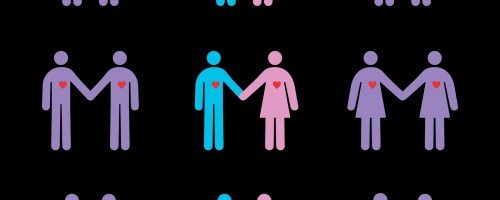
As society shifts and progresses, so too does our understanding of sexual health. The definition provided by the World Health Organization (WHO) in 1975 served as a starting point, but with culture changing at an ever-increasing pace we can expect further development along this journey. It's important to be wary that establishing 'norms' or attempting to pinpoint one single notion of what constitutes healthy sexuality could lead towards exclusionary attitudes which threaten to ostracize those who don't fit into specific ideals.
Chronological history of definitions of sexual health:
World Health Organization (2002):
Sexual health is a state of physical, emotional, mental and social well-being related to sexuality; it is not merely the absence of disease, dysfunction or infirmity. Sexual health requires a positive and respectful approach to sexuality and sexual relationships, as well as the possibility of having pleasurable and safe sexual experiences, free of coercion, discrimination and violence. For sexual health to be attained and maintained, the sexual rights of all persons must be respected, protected and fulfilled.
Robinson et al. (2002):
Sexual health is defined as an approach to sexuality founded in accurate knowledge, personal awareness, and self-acceptance, where one’s behavior, values and emotions are congruent and integrated within a person’s wider personality structure and self-definition. Sexual health involves an ability to be intimate with a partner, to communicate explicitly about sexual needs and desires, to be sexually functional (to have desire, become aroused, and obtain sexual fulfillment), to act intentionally and responsibly, and to set appropriate sexual boundaries. Sexual health has a communal aspect, reflecting not only self-acceptance and respect, but also respect and appreciation for individual differences and diversity, and a feeling of belonging to and involvement in one’s sexual culture(s). Sexual health includes a sense of self-esteem, personal attractiveness and competence, as well as freedom from sexual dysfunction, sexually transmitted diseases and sexual assault/coercion. Sexual health affirms sexuality as a positive force, enhancing other dimensions of one’s life.
The National Strategy for Sexual Health and HIV (2001):
Sexual health is an important part of physical and mental health. It is a key part of our identity as human beings together with the fundamental human rights to privacy, a family life, and living free from discrimination. Essential elements of good sexual health are equitable relationships and sexual fulfillment with access to information and services to avoid the risk of unintended pregnancy, illness or disease.
Satcher, Surgeon General's Report (2001):
Sexual health is inextricably bound to both physical and mental health. Just as physical and mental health problems can contribute to sexual dysfunction and diseases, those dysfunctions and diseases can contribute to physical and mental health problems. Sexual health is not limited to the absence of disease or dysfunction, nor is its important confined to just the reproductive years. It includes the ability to understand and weigh the risks, responsibilities, outcomes and impacts of sexual actions and to the practice abstinence when appropriate. It includes freedom from sexual abuse and discrimination and the ability to integrate their sexuality into their lives, derive pleasure from it, and to reproduce if they so choose.
Pan American Health Organization, World Association of Sexology (1991):
Sexual health is the experience of the ongoing process of physical, psychological and social-cultural well-being related to sexuality. Sexual health is evidenced in the free and responsible expressions of sexual capabilities that foster harmonious personal and social wellness, enriching individual and social life. It is not merely the absence of dysfunction, disease and/or infirmity. For sexual health to be attained and maintained it is necessary that the sexual rights of all people to be recognized and upheld.
Langfeldt and Porter (1986):
Sexuality is an integral part of the personality in everyone: man, woman and child. It is a basic need and an aspect of being human that cannot be separated from other aspects of life. Sexuality is not synonymous with sexual intercourse; it is not about whether we have orgasms or not, and it is not the sum total of our erotic lives. These may be part of our sexuality but equally they may not. Sexuality is so much more: it is in the energy that motivates us to find love, contact, warmth and intimacy. It is expressed in the way we feel, move, touch, and are touched. It is about being sensual as well as being sexual. Sexuality influences thoughts, feelings, actions and interactions and thereby our mental and physical health.







